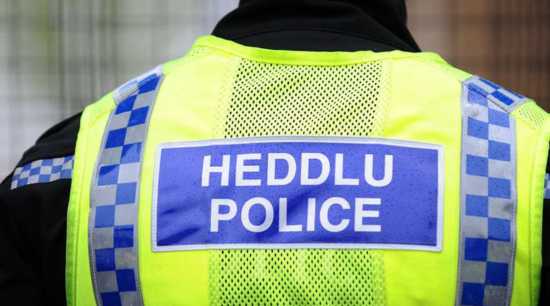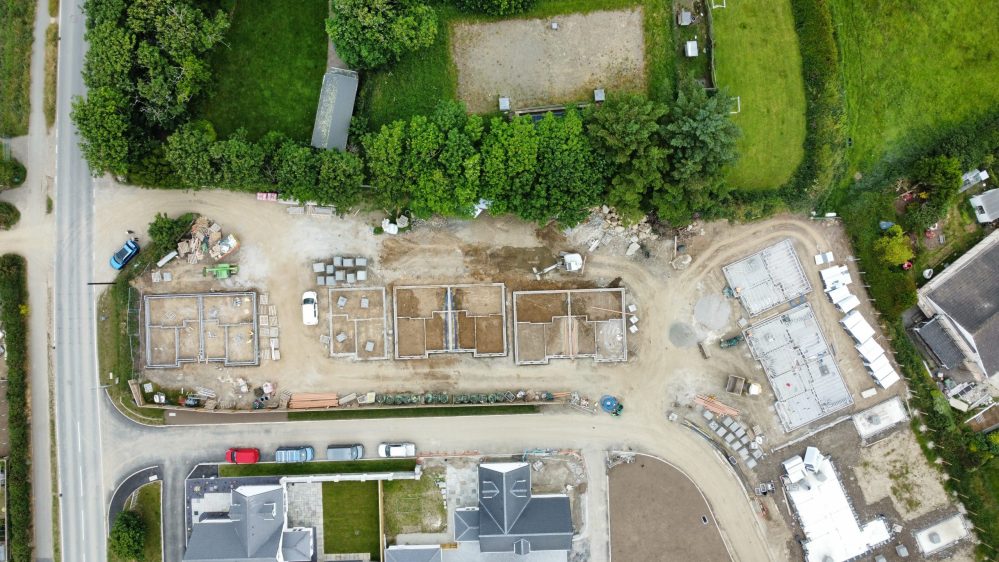News
Charity calls for improved endoscopy services

 BOWEL CANCER UK, the charity determined to save lives by promoting early diagnosis and address inequalities in treatment and care, has released a report calling for improved endoscopy services in Wales for urgent testing of patients with suspected cancer. Nearly 16,000 men and women die of bowel cancer every year in the UK, making it the second most common cause of cancer death in the UK. In Wales, there were 2,354 new cases of bowel cancer in 2010 (most recent figures available, according to Cancer Research UK). The report, entitled ‘Diagnosing bowel cancer early: right test, right time’ highlights serious problems with endoscopy services in the UK, with referral criteria, waiting times and quality of services being the key issues. A colonoscopy or flexible sigmoidoscopy are the key diagnostic tests for bowel cancer. This new research from Bowel Cancer UK highlights delays in referral for diagnostic testing caused by overlyprescriptive guidelines; a lack of investment in endoscopy capacity by Clinical Commissioning Groups (CCGs) which will fail to meet e demand and inconsistencies in the type of diagnostic test and quality of test available to patients in different parts of the UK. The current national guidelines for GPs on referral of urgent suspected cancer are restricted to those with ‘alarm’ or ‘high risk’ symptoms, such as rectal bleeding. Yet only half of people diagnosed with bowel cancer present with the ‘high risk’ symptoms that would qualify for an urgent referral. From the 708 responses from a national survey conducted in September 2013 among people with bowel cancer who had had an endoscopy, the Bowel Cancer UK report found that one in three people who had had an endoscopy had seen their GP more than three times before their referral. Of these, nearly half had a tumour detected. GPs can recommend patients have these tests with either a nonurgent or urgent referral. While the demand for endoscopies such as these is increasing, due to an ageing population and roll-out of screening programmes, the report forecasts a potential crisis as even more endoscopies are increasingly vital. Deborah Alsina, Chief Executive of Bowel Cancer UK, said, ‘We are calling for GP guidelines to be liberalised so that GPs can use their judgement and refer patients even when their symptoms do not point directly to bowel cancer. It’s a tragedy that more people are not referred for endoscopy sooner. After all, early diagnosis saves lives.’
BOWEL CANCER UK, the charity determined to save lives by promoting early diagnosis and address inequalities in treatment and care, has released a report calling for improved endoscopy services in Wales for urgent testing of patients with suspected cancer. Nearly 16,000 men and women die of bowel cancer every year in the UK, making it the second most common cause of cancer death in the UK. In Wales, there were 2,354 new cases of bowel cancer in 2010 (most recent figures available, according to Cancer Research UK). The report, entitled ‘Diagnosing bowel cancer early: right test, right time’ highlights serious problems with endoscopy services in the UK, with referral criteria, waiting times and quality of services being the key issues. A colonoscopy or flexible sigmoidoscopy are the key diagnostic tests for bowel cancer. This new research from Bowel Cancer UK highlights delays in referral for diagnostic testing caused by overlyprescriptive guidelines; a lack of investment in endoscopy capacity by Clinical Commissioning Groups (CCGs) which will fail to meet e demand and inconsistencies in the type of diagnostic test and quality of test available to patients in different parts of the UK. The current national guidelines for GPs on referral of urgent suspected cancer are restricted to those with ‘alarm’ or ‘high risk’ symptoms, such as rectal bleeding. Yet only half of people diagnosed with bowel cancer present with the ‘high risk’ symptoms that would qualify for an urgent referral. From the 708 responses from a national survey conducted in September 2013 among people with bowel cancer who had had an endoscopy, the Bowel Cancer UK report found that one in three people who had had an endoscopy had seen their GP more than three times before their referral. Of these, nearly half had a tumour detected. GPs can recommend patients have these tests with either a nonurgent or urgent referral. While the demand for endoscopies such as these is increasing, due to an ageing population and roll-out of screening programmes, the report forecasts a potential crisis as even more endoscopies are increasingly vital. Deborah Alsina, Chief Executive of Bowel Cancer UK, said, ‘We are calling for GP guidelines to be liberalised so that GPs can use their judgement and refer patients even when their symptoms do not point directly to bowel cancer. It’s a tragedy that more people are not referred for endoscopy sooner. After all, early diagnosis saves lives.’
Community
Public reminded to stay away from Ward’s Yard and Criterion Quay

THE PORT of Milford Haven is reminding members of the public to stay away from Ward’s Yard in Milford Haven and Criterion Quay (sometimes known as the offshore jetty) in Pembroke Dock due to concerns over public safety.
Despite significant security measures, people continue to access the sites illegally, ignoring and sometimes damaging the onsite signage and fences.
Niall Yeomans, Head of Health, Safety and Security at the Port of Milford Haven said: “Safety is our key priority. Members of the public are continuously putting themselves and members of our team at risk of serious harm by trespassing in these areas.”
“Both Ward’s Yard and Criterion Quay are unsafe for public access. They are isolated areas next to deep water and are susceptible to slips, trips and falls.”
Both sites are owned by the Port of Milford Haven and are private property. Anyone found onsite without consent is trespassing, and any criminal damage could result in prosecution.
Anyone who sees any suspicious activity at Ward’s Yard or Criterion Quay is asked to contact Dyfed Powys Police on 101 urgently.
Crime
‘Sophisticated’ organised crime gang trafficked cocaine and cannabis to Aberystwyth

FIVE people have been found guilty or admitted to conspiring to supply cocaine and cannabis as Dyfed-Powys Police continues its efforts to dismantle organised crime gangs.
Officers seized cocaine with a street value of more than £400,000 from gang members, who continually changed tactics to avoid arrest.
Six defendants have appeared in court in the latest phase of Dyfed-Powys Police’s Operation Burleigh, which sought to disrupt the trafficking and onward supply of class A and B drugs into Aberystwyth, with all but one admitting their charges or being found guilty by a jury.
This brings the total number of people awaiting sentence under the operation to 15.
The court heard that officers from Dyfed-Powys Police’s Serious and Organised Crime Team and Ceredigion Priority Policing Team led the investigation into the OCG, which was described as ‘sophisticated, well-organised and evolving’.
Detective Sergeant Steven Jones said: “This conspiracy operated on a County Lines model, where controlled drugs are trafficked into a smaller rural town from a larger city, and the operation is controlled by one or more ‘drugs lines’.
“In this case there were a total of four lines controlling the supply of cocaine and cannabis within Aberystwyth.
“The conspirators frequently evolved their actions to frustrate the authorities and evade capture.”
The OCG embedded members were mainly asylum seekers brought to Aberystwyth by Toana Ahmad and another man who remains outstanding, with the sole purpose of dealing drugs. The drug lines were initially based in Swansea, and later in areas of Birmingham.
Three properties – on Terrace Road, Alexander Road and Parc Graig Glas – were identified early in the investigation as being used to house the OCG members embedded in Aberystwyth. Substantial amounts of cash, controlled drugs and weapons were recovered from these properties, and from the people found inside.
When arrests were made, the gang changed its tactics. Drugs began to be supplied from vehicles, and OCG members stayed in guest houses to avoid detection.
DS Jones added: “Trusted couriers were employed to transport drugs to Aberystwyth and cash back to Birmingham or Swansea. A number of vehicles, including taxis, were used as the gang attempted to avoid detection along the route, while trains were also taken when courier cars were stopped by officers.”
In June 2023, two vehicles travelling from the West Midlands towards Aberystwyth were stopped by police on consecutive days. A black sock was uncovered in the engine of the first car, which was found to contain 82g of high purity cocaine divided into 169 grip seal plastic bags.
Davinder Singh, who previously pleaded guilty to conspiracy to supply class A and class B drugs, was the driver of the second vehicle, which was a taxi. A blue plastic bag was seen falling out of his shorts, which contained over 81g of high purity cocaine divided into 167 grip seal bags.
DS Jones said: “On the basis that the amounts of cocaine transported over the 37 couriers over the course of the conspiracy period were similar, over 3kg of cocaine would have been conveyed to Aberystwyth from Birmingham.
“This equates to class A drugs with a potential street value of over £308,950. In addition to this, class A drugs were seized from individuals and addresses with a potential street value of £103,445, along with cash totalling £11,687.
“A number of teams and departments across Dyfed-Powys Police, from analysts, CCTV operators and priority policing teams, to CAB, the Technical Support Unit, Economic Crime Team and Force Intelligence Bureau all assisted in dismantling the OCG from top to bottom.
“Their dedication and relentless efforts have assisted in making Aberystwyth a safer place to live without the threat and harm of drugs being made easily available on the street.”
After a seven-week trial at Swansea Crown Court earlier this year, the following three defendants were found guilty for their parts in the conspiracy:
- Toana Ahmad, aged 33, of Lee Gardens in Smethwich, West Midlands
- Barzan Sarhan, aged 31, of no fixed address
- Ahmed Piro, aged 26, of no fixed address
The jury failed to reach a verdict on two defendants during the earlier trial. They have been subject to a retrial starting on July 1, with the following outcomes:
- Hawre Ahmed, aged 35, of Pinderfields Road, Wakefield, West Yorkshire, was found guilty by the jury of conspiracy to supply Class A and B controlled drugs.
- Diar Yousef Zeabari, aged 35, of Flat 5, 41 Bryn Road, Swansea, was found not guilty of conspiracy to supply Class A and B controlled drugs.
Karwan Karim, aged 39 of 125 Griffith John Street, Swansea, also stood trial, and pleaded guilty to conspiracy to supply Class A and B controlled drugs on day three.
In addition to the OCG members found guilty during the most recent trials, the following have previously pleaded guilty to charges of conspiracy to supply class A and class B drugs under Operation Burleigh:
- Davinder Singh, aged 36, of Huntingdon Road, West Bromwich
- Daban Khalil, aged 23, of Streetly Road, Birmingham
- Kastro Omar, aged 30, of Junction Road, Northampton
- Karwan Jabari, aged 26, of Weedon Close, Northampton
- Walid Younis Abdal, aged 34, of St Anne’s Road, Doncaster
- Saman Aziz, aged 41, of Kirk Road, Merseyside
- Adel Mustafa, aged 39, of Hubert Road, Newport
- Charlotte Roberts, aged 21, of Sutton Hill, Telford
The following have previously pleaded guilty to conspiracy to supply class A drugs:
- Akasha Smith, aged 24, of Third Avenue, Aberystwyth
- Luqman Jarjis, aged 21, of Wake Green Road, Birmingham
News
Community asked for views on allocation of new St Davids homes

THE FIRST phase of Pembrokeshire County Council’s Glasfryn housing development in St Davids is progressing well with the second phase also underway.
The development being built by GRD Homes Ltd, began in November 2023, with a first phase completion date of Winter 2024 looking hopeful, ahead of the scheduled plans.
The first phase consists of seven properties, including a mixture of one and two bedroom bungalows
As completion draws closer the properties will be advertised via Pembrokeshire Choice Homes.
Ahead of this, the Council’s housing team will be holding community engagement on the 13th August 2024 at the Ty’r Pererin Centres, Quickwell Hill, St Davids, SA62 6PD, 5pm-7pm.
This will be a chance for officers to liaise with the local community about the allocation process for these properties.
Glasfryn’s second phase is well underway, with the initial groundwork already completed. This phase includes a further 11 two bedroom bungalows, with a completion date in late 2025.
These bungalows will meet the latest Welsh Government’s Development Quality Requirement, and will be energy efficient, built to EPC A specification and include solar panels to help tenants with running costs.
The Glasfryn development is funded in partnership with Welsh Government.
Cabinet Member for Housing Cllr Michelle Bateman said: “We are really keen to work with the community on a local lettings policy for these new properties, as we have done for our developments in other parts of the County.”
If you have any queries please email the Customer Liaison Team on [email protected], phone them on 01437 764551, or visit Housing’s Facebook page.
-

 Education5 days ago
Education5 days agoMilford Tesco worker achieves Oxford dream and lands top legal job
-

 Crime4 days ago
Crime4 days agoHaverfordwest man admits having nearly 1000 child and animal images
-

 Crime4 days ago
Crime4 days agoYouth set to appear in court over serious sexual offences
-

 Crime4 days ago
Crime4 days agoPolice investigating after man injured during altercation in cemetery
-

 Education4 days ago
Education4 days agoPupils delight in ice cream treat from Pembrokeshire’s number one van
-

 Crime4 days ago
Crime4 days agoTown centre ‘stinking of skunk’ as police strip cannabis farm
-

 Crime3 days ago
Crime3 days agoFag-butt police court summonses spark debate in Pembrokeshire
-

 News6 days ago
News6 days agoProposal to give firefighters a council tax discount to go to Cabinet




























